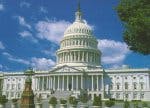Laboratories are realizing that following Phase I of the Stark II statute can be confusing, especially when it comes to providing referring physicians with free gloves and other items.
To help set the record straight, lab groups are offering advice to lab operators. We are making it overwhelming clear to everybody that labs are prohibited from providing gloves to referring physicians, says Joanne Glisson, vice president of government affairs for the American Clinical Laboratory Association (ACLA). This directive, she points out, is provided in the rules preamble.
While the rule mentions only sterile gloves, says Mark Langdon, an attorney with Arent Fox in Washington, D.C., the Centers for Medicare and Medicaid Services (CMS) has indicated informally that it applies also to nonsterile gloves. The rationale for CMSs position is that both sterile and nonsterile gloves can be used for purposes other than collecting specimens for testing, and therefore could constitute improper remuneration within the meaning of the Stark law, he says.
In addition, the agency believes that since gloves are fungible, it would be impracticable for physicians offices to monitor and regulate the use of gloves so as to limit their use to the collection of specimens, he adds.
The law does include an exception that allows labs to provide customers with single-use needles, vials and specimen cups. These are items that CMS believes would be used only for lab specimens as opposed to gloves that could be used for multiple purposes.
Langdon points out, however, that there is another exception to the Stark law that is potentially available to protect arrangements where free gloves are provided to referring physicians.
It relates to nonmonetary compensation up to $300. Under the exception, an entity such as a laboratory may give a noncash gift to a physician with a value in excess of $50 as long as the aggregate annual value of all gifts doesnt amount to more than $300, he explains.
Three requirements must be met when using the exception. First, the gift cant take into account the volume or value of referrals or other business generated by the referring physicians. Second, the physician or the physicians practice cannot solicit the compensation. Lastly, the arrangement cannot violate the anti-kickback statute.
Langdon cautions that physicians and laboratories need to be aware that this exception only protects gifts given to individual physicians, and does not protect such gifts when they are provided to group practices. Therein lies the difficulty. Specifically, a risk would exist that CMS would take the view that, even if the provision of free gloves to five individual physician members of a practice meets the above requirements, the gloves are really tantamount to office supplies and therefore constitute a group gift that is not protected under the exception.
There may be more to come on this. It is possible that the issue of free gloves will be addressed again when Phase II of Stark II is released later this year, says Langdon. Phase II is expected to go into effect next year.
MedPAC report calls for lab fee rates overhaul
Organizations representing the interests of laboratories are encouraged by a series of recommendations recently made by the Medicare Payment Advisory Commission (MedPAC) concerning Medicare payments to laboratories. Even so, they are not sure how seriously Congress will take the recommendations.
MedPac is a federal group that advises the Medicare program on payment issues. In its March 2002 report to Congress, the advisory panel calls for an overhaul of lab fee schedule rates and significant improvement in lab claims processing.
In particular, MedPAC is urging Congress to take a close look at the relationship of lab fees to costs. The panel points out that the lab fee schedule is based on charges that are 20 years old and that local carriers have not adjusted the charges to reflect costs when they established their original fee schedule.
The advisory group also criticized the fact that each carrier has a separate fee schedule, calling such an arrangement a waste of resources. Further, it found the varying medical necessity documentation standards confusing and were often the source of many claim denials.
Groups representing laboratory interests hope lawmakers will heed the panels advice, but they wonder how much clout MedPAC now has with Congress. Some health analysts believe MedPACs influence has kind of tapered off, says Mark Birenbaum, Ph.D., administrator for the American Association of Bioanalysts (AAB) in St. Louis, MO.
Even so, it is of interest to know that MedPAC is addressing the lab payment issue, he says. ACLAs Glisson agrees. It is good that MedPAC finally decided to mention us, she asserts.
As far as specific lab fee schedule rates are concerned, budgetary restraints could get in the way, says Glisson. As a result, only time will tell whether Congress will heed the recommendations when fashioning payment and policy reforms under Medicare.
Joan Szabo is a Washington, DC, freelance writer specializing in healthcare issues. She has been writing the Washington Report column for MLO for five years.
© 2002 Nelson Publishing, Inc. All rights reserved.


